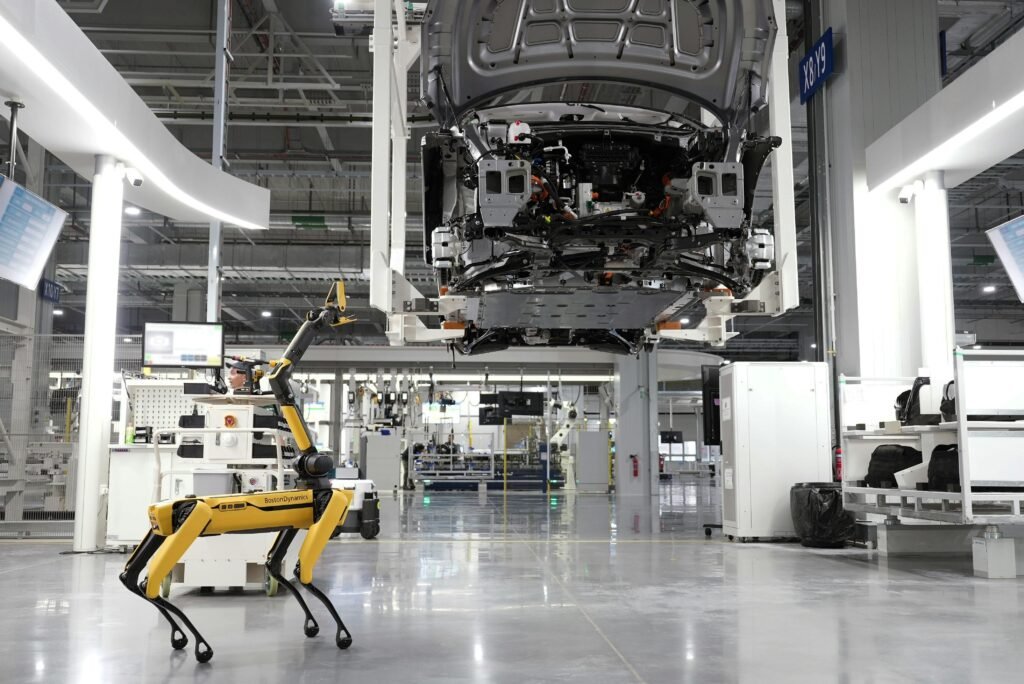🚀 How AI Is Changing the Pharmaceutical Industry: 7 Groundbreaking Ways It’s Revolutionizing Drug Discovery in 2025
The pharmaceutical industry is undergoing a transformation like never before. And at the core of this evolution is artificial intelligence. Understanding how AI is changing the pharmaceutical industry is essential for those involved in healthcare, research, biotech, and beyond.
At AiBlogQuest.com, we break down 7 groundbreaking ways AI is revolutionizing pharma in 2025—from molecule discovery to patient personalization.
🧪 1. Accelerated Drug Discovery
AI models like DeepMind’s AlphaFold and AtomNet:
-
Predict protein folding structures in seconds
-
Identify potential drug candidates with higher accuracy
-
Save billions in R&D costs
This drastically reduces the time it takes to move from compound to cure.
🧬 2. Personalized Medicine & Genomic Profiling
AI analyzes:
-
Genetic data
-
Lifestyle patterns
-
Drug response history
This enables customized treatment plans for conditions like cancer, diabetes, and depression.
⚙️ 3. Smart Clinical Trials
AI optimizes:
-
Patient recruitment based on predictive models
-
Trial site selection using real-time logistics data
-
Monitoring adverse events with NLP tools
Platforms like IQVIA and Trials.ai use AI to make clinical trials faster and safer.
💊 4. Drug Repurposing at Scale
AI scans thousands of existing drugs to:
-
Find new uses for them
-
Reduce development costs
-
Accelerate approval timelines
Example: AI helped identify Baricitinib as a COVID-19 treatment in record time.
🧠 5. Predictive Pharmacovigilance
AI helps pharmaceutical companies:
-
Detect side effect trends in real-time
-
Analyze post-marketing surveillance data
-
Improve regulatory compliance with NLP-based reporting
AI = safer drugs, faster.
🏭 6. Supply Chain Optimization
AI manages:
-
Inventory forecasting
-
Real-time demand sensing
-
Risk alerts for manufacturing disruptions
This reduces waste and improves delivery to patients, especially in pandemic scenarios.
🧾 7. AI in Regulatory Affairs
AI tools assist in:
-
Generating compliance documentation
-
Monitoring global regulations
-
Automating FDA submissions
Tools like RegAsk AI reduce delays in bringing new drugs to market.
🔗 Useful Links from AiBlogQuest.com
❓ FAQ: How AI Is Changing the Pharmaceutical Industry
Q1. What is the biggest benefit of AI in pharma?
AI dramatically reduces the time and cost of drug discovery while improving precision and patient outcomes.
Q2. Is AI being used in real drug development?
Yes. Companies like Pfizer, Roche, and Novartis actively use AI for molecule design, trial management, and safety testing.
Q3. Can AI help cure rare diseases?
AI’s speed in pattern recognition and gene matching makes it a powerful tool for identifying rare disease treatments.
Q4. What are the risks of using AI in pharma?
Challenges include data privacy, bias in training datasets, and lack of explainability in deep learning models.
Q5. Will AI replace pharma researchers?
No—but it will augment their capabilities, making teams faster, smarter, and more efficient.
🏁 Final Thoughts
The role of AI in the pharmaceutical industry is no longer futuristic—it’s here and it’s transforming drug discovery, clinical trials, and patient care. With each innovation, AI is unlocking potential that traditional methods simply can’t match.
Stay ahead of the AI-healthcare curve at AiBlogQuest.com — your trusted guide to intelligent innovation.
🏷️ Tags:
how AI is changing the pharmaceutical industry, ai drug discovery, ai clinical trials, pharma tech 2025, aiblogquest



